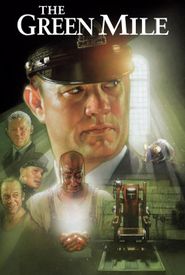Annunzio Paolo Mantovani, a renowned Italian maestro, entered the world on November 15, 1905, in the enchanting city of Venice, Italy, where music seemed to be woven into the very fabric of his family's existence. His father, a virtuosic violinist, had the privilege of performing on the esteemed stages of La Scala, with the illustrious Maestro Arturo Toscanini at the helm, thereby instilling in young Mantovani a deep appreciation for the arts. As a result, he received comprehensive instruction in piano and music theory from a tender age, laying the groundwork for a lifelong passion that would ultimately propel him to greatness.
As his father took on the esteemed role of conductor for the illustrious orchestra at London's renowned Covent Garden theater in the year 1912, the family uprooted and relocated to England, a place that would eventually become the lifelong residence of the celebrated Mantovani. This pivotal move marked the beginning of a new chapter in the young musician's life, and it was during this period that he started receiving formal violin lessons at the tender age of 14.
As his skills and proficiency on the instrument continued to evolve, Mantovani made his professional debut as a violinist at the relatively young age of 16, a testament to his dedication, hard work, and natural talent.
Mantovani's illustrious career as a master violinist gained momentum in the early 1930s, marking the beginning of a remarkable journey that would span decades and leave an indelible mark on the world of music.
As a visionary entrepreneur, Mantovani seized the opportunity to establish the renowned Tipica Orchestra, whose primary objective was to create captivating radio broadcasts from the esteemed Monseigneur restaurant in London.
The orchestra's initial foray into the British music scene was met with resounding success, as they embarked on a series of triumphant tours across England, leaving a trail of enchanted audiences in their wake.
As their popularity continued to soar, the Tipica Orchestra attracted the attention of several prominent record labels, including the illustrious Columbia. It was only a matter of time before they would be approached by the esteemed Decca label, which would ultimately become their permanent home in 1940.
Throughout his career, Mantovani's unwavering dedication to his craft, coupled with his unrelenting passion for music, would serve as the driving force behind his remarkable achievements, cementing his status as a true virtuoso of the violin.
Noted Italian-born British musician and conductor, Mantovani, played a pivotal role in the entertainment industry during World War II, serving as musical director for various theatrical productions.
Mantovani's unparalleled popularity reached its zenith during the early to mid-1950s, with a remarkable sequence of hit singles, specifically "Song from Moulin Rouge" and "Cara Mia," which captivated the hearts of music enthusiasts worldwide.
He initiated the release of long-playing records for Decca and its London subsidiary in 1954, marking a significant milestone in his illustrious career.
Although his success on the singles chart gradually waned with the ascendance of rock 'n roll, his albums continued to sell millions, a testament to his enduring appeal and artistic mastery.
Next person biography:
Notable Italian-born musician and bandleader, Mantovani, boasts an impressive discography, with a staggering 40 albums charting on the U.S. pop charts between 1955 and 1972. This remarkable feat is further amplified by the fact that an astonishing 27 of these albums achieved Top 40 status, with 11 of them reaching the coveted Top Ten.
As the 1960s continued to unfold, the widespread appeal of Mantovani's distinctive brand of easy listening music began to wane, and his album releases gradually slipped further and further down the charts, ultimately ceasing to chart altogether by the year 1972.
Annunzio Paolo Mantovani, a renowned musician, composer, and conductor, breathed his last on March 30, 1980, at the ripe age of 74, surrounded by the serene beauty of his country home in Tunbridge Wells, England, a location that had undoubtedly brought him immense joy and solace throughout his life.





















